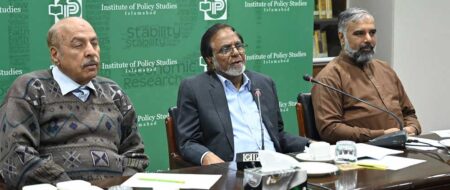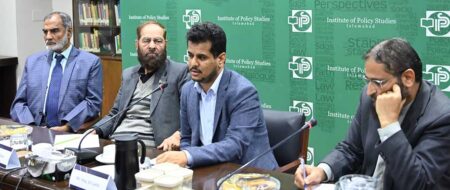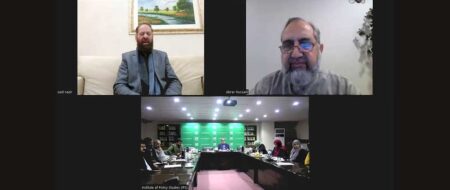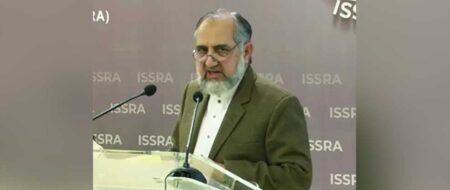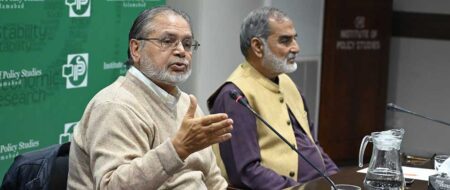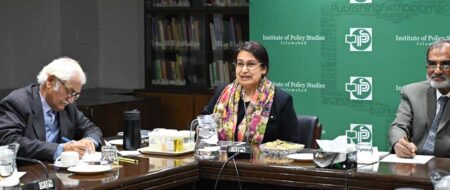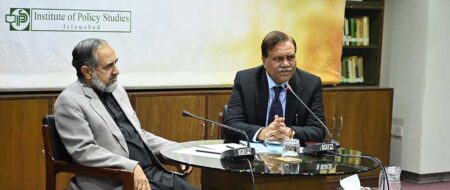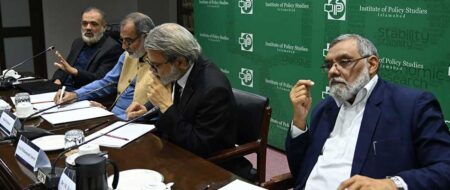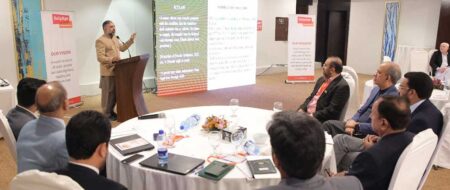International Conference on Pak-china Relations
Marking the 60th anniversary of Pak-China Diplomatic Relations IPS organized a two-day international conference on April 11-12, 2011 in collaboration with Institute of South Asian Studies, Chengdu and Institute of South Asian Studies, Kunming.
IPS gives great importance to the study of China and Pak-China Relations and Cooperation. Over the years, IPS has built strong links with Chinese institutes. China Study Program, headed directly by Director General Khalid Rahman includes scholars’ exchange, joint conferences as well as seminars, and exchange and publication of research findings.
Marking the 60th anniversary of Pak-China Diplomatic Relations IPS organized a two-day international conference on April 11-12, 2011 in collaboration with Institute of South Asian Studies, Chengdu and Institute of South Asian Studies, Kunming. The conference was divided into four sessions including the inaugural session, two working and the concluding session.
 |
 |
The working session on “The Challenges of Security and Stability” was chaired by Amb (r) Arif Ayub while Fasih Uddin, former Chief Economist GoP and member IPS NAC, presided over the session on “Economic Development and Infrastructure Issues”. Mr. Farooq H. Naek, Chairman Senate of Pakistan, and then acting President of Pakistan was the chief guest in concluding session of the conference.
While surveying the history of Pakistan China diplomatic relations various phases and milestones in these bilateral ties, challenges and prospects were discussed at length.
It was noted that Sino-Pak relations are one of the three most prominent achievements of Pakistan, other two being the 1973 constitution and the nuclear capability. China can be termed the only country, which enjoys the strategic relations with Pakistan in the real sense of the word.
It was argued that China had presented a role model for the world in which it has shown in contradiction to hegemonistic West that economy is better nurtured through the tools of respect and peace than the wars and invasions. China has demonstrated a “happy blend of tradition and the modernity” and Pakistan needs to learn from this experience as to how a semi-colonial and poor country became the world’s leading economy and gaining the soft power.
 |
 |
The speakers observed that exemplary relationship between Pakistan and China needs to be reshaped and strengthened in the wake of recent changes in the regional and global environment which are profound and complex.
It was highlighted that the steps to strengthen the socio cultural cooperation including proposals for human resource development, training, information network, and education; exchange program for students and teachers need to be taken. People-to- people contact would lead this bilateral relations to the new heights besides engaging in other significant areas such as agriculture, industry, infrastructure development and trade. There is also a need to break the language barrier between the two countries as the Himalayan Mountains we broke in order to make Karokoram Highway.
Chinese envoy to Pakistan Mr. Liu Jian apprized the participants that China had invested more than one billion dollar and contracted more than 120 projects in Pakistan and recently 20 commercial contracts valued at more than ten billion USD have been signed. China always takes the development of China-Pakistan ties as the priority in its diplomacy and this will continue in future as well.
 |
 |
 |
 |
 |
Acting President of Pakistan Mr. Farooq H. Naek told the participants that Pak-China ties are a symbol of peace and stability in the region and the world. He also mentioned that the two sides had decided to renew the Five-Year Development Program on Trade and Economic Cooperation and had agreed to cooperate in a number of areas.
 |
 |
It was also pointed out that Pakistan and China had signed as many as 278 MoUs in almost all arenas of life but most of them could not be materialized. There is a great need to identify the bottlenecks which prevent their implementation and should be addressed without further delay by carving out effective implementation mechanism and integrated planning.



